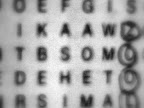Jared Diamond's troubling op-ed
Jared Diamond's piece in Sunday's NYT was a real mixed bag. Ultimately he ends up in some of the right places, supporting government action on climate change and other environmental problems (shouldn't be too much to ask). And he rightly notes that "in the long run (and often in the short run as well) it is much more expensive and difficult to try to fix problems, environmental or otherwise, than to avoid them at the outset."
But Diamond takes some awful turns on his route to these points, praising businesses he says are doing great things. He says, in most of the cases, that they are taking actions that are simply in their own good (i.e. investing in improving efficiency), yet he gets quite excited about it -- as if we should praise them for doing so.
His examples are Wal-Mart, Coca-Cola and Chevron. He reports:
Wal-Mart stores also have machines called bailers that recycle plastics that once would have been discarded.Wow. Getting people to buy plastic items that they would not have bought before, and then marketing it as an environmental victory when you use a basic technology to help in the recycling of some other plastic -- that's guts.
And then there's this:
One last Wal-Mart example shows how a company can save money in the long run by buying from sustainably managed sources. Because most wild fisheries are managed unsustainably, prices for Chilean sea bass and Atlantic tuna have been soaring. To my pleasant astonishment, in 2006 Wal-Mart decided to switch, within five years, all its purchases of wild-caught seafood to fisheries certified as sustainable.This sounded like quite some spin, so I checked the Greenpeace report from earlier this year on grocery stores' fish policies (big PDF). Walmart was rated 7th out of 20 chains. Greenpeace reports: (page 13)
Wal-Mart’s recent creation of a comprehensive sustainable seafood policy is a positive step, but its reliance on certification systems which certify species like Chilean sea bass and hoki is problematic. Wal-Mart could significantly improve its overall score by discontinuing these species, regardless of certification.Referring to a number of different sustainable-seafood monitoring programs, Greenpeace reports:
At the time this report went to press, less than half of the seafood sold by Wal-Mart was covered under the aforementioned policies.That more of it will be in 2011 is great, but really, five years for implementation? Finally, Greenpeace notes:
Wal-Mart has recently discontinued its sales of orange roughy, swordfish, and shark, although some residual inventory may still exist in the supply chain. Recent Greenpeace surveys found that Wal-Mart still sells 13 of 22 red list species: Alaskan pollock, Atlantic cod, Atlantic salmon, Atlantic sea scallops, bigeye tuna, Chilean sea bass, grouper, hoki, ocean quahog, red snapper, South Atlantic albacore tuna, tropical shrimp and yellowfin tuna.Diamond goes on to tell us of how Coca Cola is doing good things in its water policy and Chevron is doing good things in its environmental policy. It reads a bit like a press release.


1 Comments:
This op-ed gave me the creeps too! I wasn't too impressed with his defense of Chevron, or lack there of.
Post a Comment
<< Home